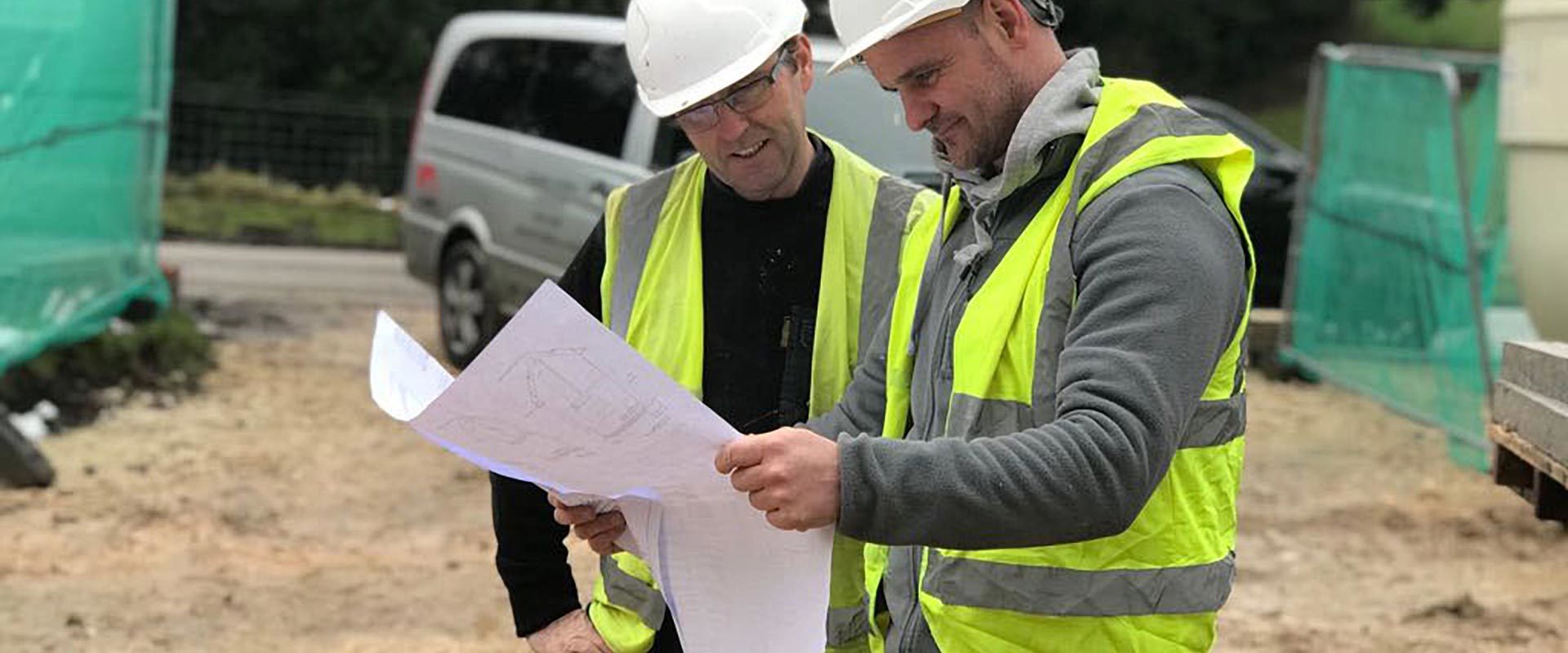Image: Terry Huggett Developments
Choosing the right builder can often make or break a project. Get it right and the construction phase is likely to go relatively[!] smoothly. Get it wrong and you could be left with escalating costs, a delayed completion date and a poor finish which can sour your dream project.
Notice that we haven’t asked the question, “how do you get the cheapest builder for your project?”. There are very few situations in life where the cheapest option is best and in building, this is particularly true. Buildings last a very long time and your building project may well be one of the largest investments you make in your lifetime.
You have to strike an acceptable balance between cost, time and quality. Whilst you will inevitably find a compromise for each of these, what you won’t get is the lowest cost, shortest time and highest quality. This “perfect” combination doesn’t exist.
How to keep control of costs during the early stages
We touch on this in our costing advice, but to ensure cost control, don’t wait for a builder to be involved before you plan the project construction cost. From early on you can gain an understanding of likely costs using a range of freely available tools including our build cost calculator. Use these to set a reasonable budget or scope of works for your available funds.
Choosing a builder
The process of choosing a builder to work with on your project is known as Tender. We are normally involved in advising the client on choosing a suitable route for this process. These usually fall into two broad camps: competitive or collaborative.
Competitive Tender
This is seen as the traditional or “normal” route for choosing a builder. Your architect prepares a detailed set of construction drawings and specifications and these are sent to a selection of 3-5 builders to get comparative quotes for the work. The deciding factor invariably becomes cost, not quality or value. It’s naturally difficult for clients to overlook the cheapest price, especially if it’s significantly lower.
If you’re comparing apples with apples and all the contractors are offering the same service, this is great as you have got the best value. But how do you ensure this is the case? We have a selection of builders we trust to deliver high-quality results and to not cut corners on tender prices to win work, but not all builders are as honest with their tender practice. If it’s too good to be true, it probably is and you’ll likely pay for it in the long run.
So, is there a better way of doing things?
Collaborative Tender
This process allows you to get your builder on board earlier; taking advantage of their skills and expertise during the development of construction details. We think this provides the client with the best value project in the long run.
If you find a builder that you want to work with; you like their work and their attitude; then you can work with them from an early stage and get them to buy-in to the project and your budget. It’s then not a question of cutting items out but developing ways to achieve all the project fundamentals in the cost-effectively. There are real benefits to this that easily outweigh any minor cost saving you might make through competitive tender:
Shorter timescales:
- The builder’s mobilisation period
- The time it takes from being instructed to being ready is started so much earlier
- Imagine many weeks of developing construction information, waiting 6 weeks for a tender return only to find you need to wait another 3-4 months for the best contractor
Builder expertise:
- The builder is available to discuss the project during this detailed technical design phase
- They have the potential to save you money or add value without adding cost
- You may find that specifications and details can be amended for no change in performance but a notable reduction in cost, just by having access to the person who will be delivering the project that much earlier
Builder buy-in:
- The builder will have spent much more time looking at the project and fully understanding it before the time to start on site arrives
- Most apparent issues can have already been dealt with and the likelihood of site delays and extensive site queries are significantly reduced
Some more tips for working with a builder for your project:
- Ask for a recommendation. We can put you in touch with some great builders. It’s also likely that a friend, family member or colleague has had building work done in the past, so ask them for a referral.
- Use a Trade Association. Schemes like the Federation of Master Builders and Trust Mark are a good indication of a quality builder.
- Do your homework. Ask for references from your builders and talk to previous clients, preferably at their completed project without the builder being present. A builder is only as good as his last project so try to see their last project, not necessarily their best or biggest.
- Have a thorough set of drawings and specifications for your project. This helps the project to be built correctly and finished to a high standard. It also means you’re more likely to get what you’ve paid for. Scrimping on the construction drawing package can lead to disappointment and that’s why we include a thorough set of construction information in all of our projects.
- Use a contract. We recommend that all our clients have a formal contract in place with their builder. This should use our construction information to confirm the extent of works the builder will be carrying out, with an agreed price and how long it will take. This will be an important point of reference if there is a dispute.
